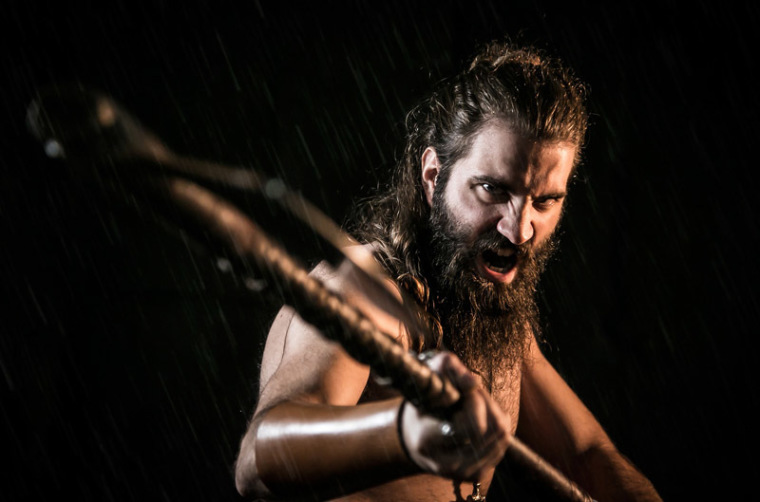
25 September, 1066, Stamford Bridge. A single figure cuts into the sky, feet planted, shoulders square. Thick arms, blood-streaked, hoist a battle axe aloft in a display of defiance. An opposing army lies before him, thousands of swords and spearheads glinting in the sun. On the open plains their superior numbers have successfully driven the diminishing Viking forces into retreat, but now they face a chokepoint, a bridge, defended by one lone warrior.
Ten of the king’s men charge forward, but they are no match for this beast from the sea. Another ten forward, and their fate is the same. The warrior wields his axe like a man possessed, his aim sure, his blows devastating. Another twenty, and the warrior is no longer alone, surrounded by a growing wall of those he has vanquished.
His fate is sure; no man can outlast such incredible odds, but he laughs in the face of death and commits his last acts to the halls of legend. Long will the poets whisper his name around the campfires, singing songs of his exploits and writing odes in his honour.
Growing up to be great
The lines of fact and fiction may be blurred in the tales of the Viking sagas, but they are compelling stories no less. The image of a Warrior standing strong against a thousand men, only his battle axe and their fear between them, is striking to say the least.
I think deep down we all want to be heroes, to do great things. When I was younger I thought that I would grow up to change the world. I would read books of great men and women, and think, ‘One day this will be me, and it will be my story read out to the next generation, my story inspiring the next wave of adventurers.’
In my youth my imagination ran wild, and I would see myself exploring new seas, unveiling new discoveries, fighting for the lost and sacrificing myself for the greater good in a passionate display of glory that would echo through the ages.
But not everyone can be a hero. If everyone was, the word wouldn’t mean anything. Heroism would be the new normal!
Just like the next guy
As I grew up, I realised just how normal I am. I live in a world alongside seven billion people, in a suburb of houses that all look like mine. I certainly have my idiosyncrasies, my little quirks that make me different, but on face value I am just another middle class westerner with a flair for the melodramatic.
And yet, even as I stand, not on some faraway bridge with an axe in my hand, but in a crowd of anonymous faces, I realise that though the poets may not know my name there is one greater than they who does.
God knows my name
Psalm chapter 139 verses 1 to 3 (NIV) – You have searched me, Lord, and you know me. You know when I sit and when I rise; you perceive my thoughts from afar.
You discern my going out and my lying down; you are familiar with all my ways.
God knows me. He knows my ways, my thoughts, and my actions. I haven’t done anything to deserve that. I haven’t done anything extraordinary to merit his attention. But God has chosen to take an interest in me, and the greatest thing I’ll ever do is learn how to reciprocate that and get to know Him, for the Bible declares that in knowing God we find eternal life:
John chapter 17 verse 3 (NIV) – This is eternal life, that they may know You, the only true God, and Jesus Christ whom You have sent.
I haven’t found a place in the halls of legend, but I’ve found the architect behind the whole building, and He knows my name.

Thomas Devenish lives in Hobart, Tasmania with his wife and two daughters. He works as a motion designer and enjoys the diverse experiences life has to offer, from chasing tennis balls to curling up with a good book on a rainy day. Thomas Devenish’s previous articles may be viewed at www.pressserviceinternational.org/thomas-devenish.html